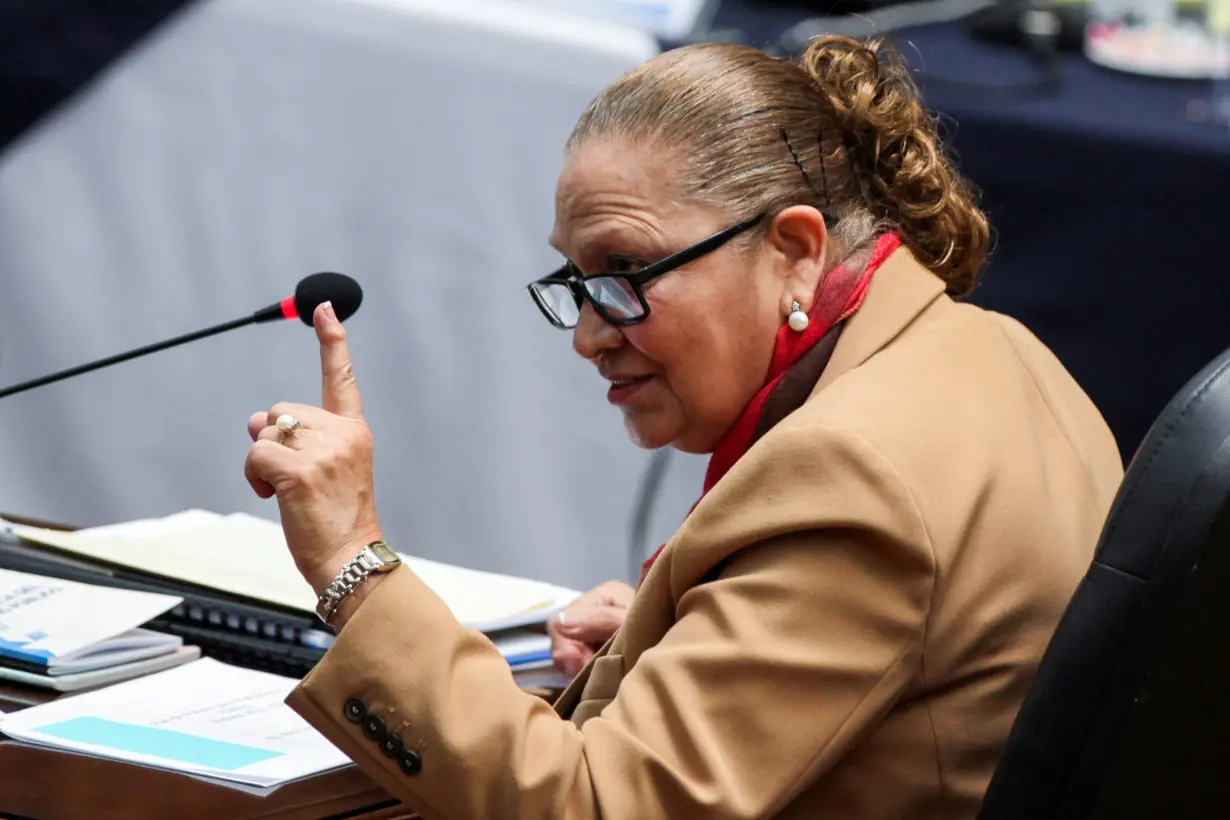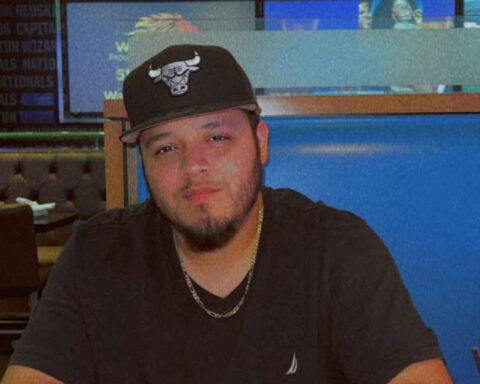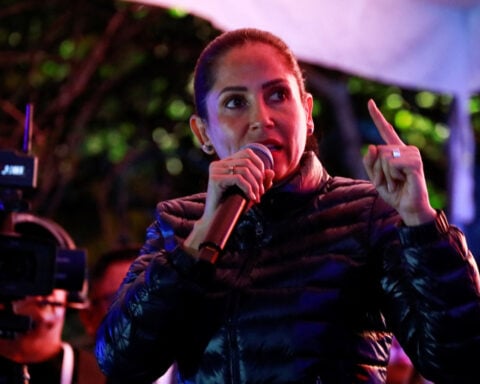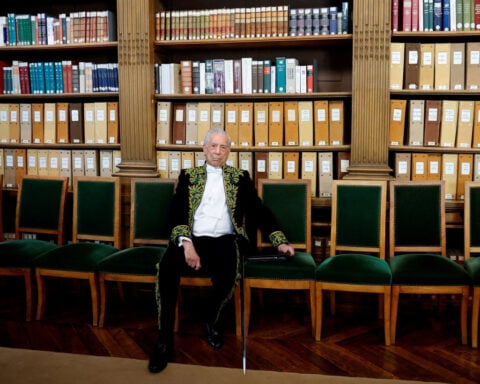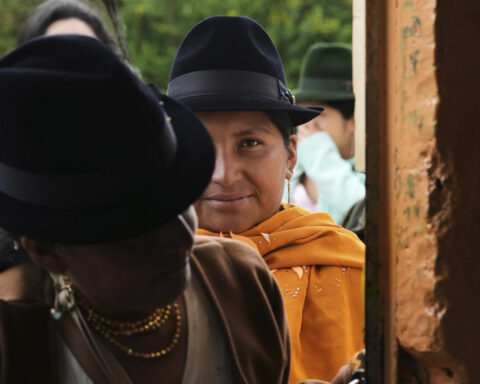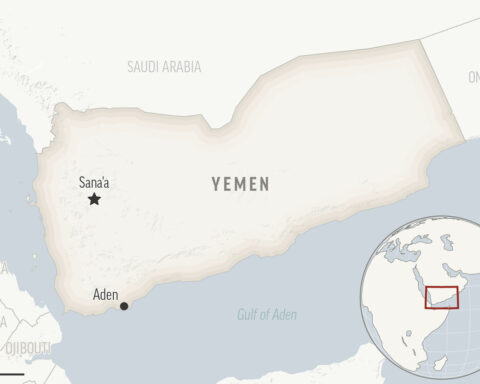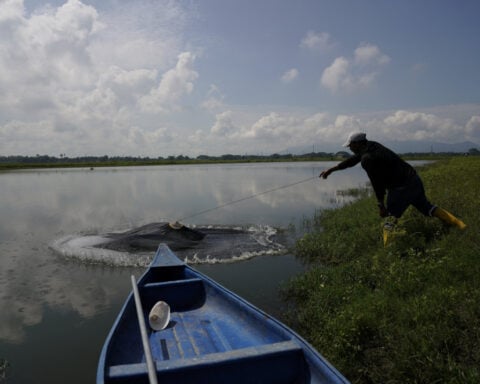By Sofia Menchu
GUATEMALA CITY (Reuters) - Guatemala's attorney general, a steadfast opponent of President-elect Bernardo Arevalo, has crafted a complex strategy to weaken his mandate or prevent him from taking office, according to five sources with knowledge of the prosecutor's thinking.
Guatemala is in the throes of a political crisis that has seen historic demonstrations paralyze Central America's most populous country, forcing the cancellation of flights.
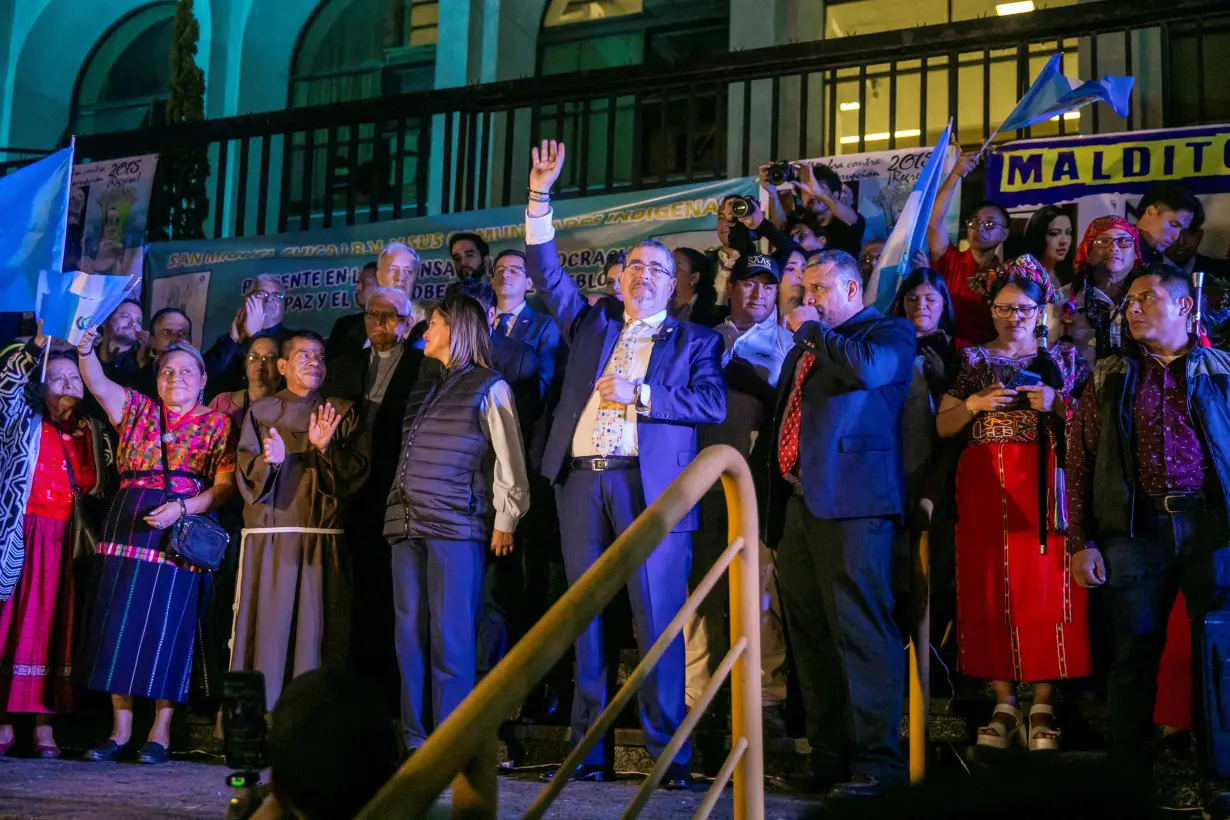
At the center is Attorney General Maria Consuelo Porras, who protesters blame for attempting to prevent Arevalo from taking office on Jan. 14. She faces international condemnation, including from the United States.
Anti-graft campaigner Arevalo won a shock landslide victory in August but has received a backlash from the political establishment.
Porras faces loud calls to resign, including from Arevalo who accuses her of an attempted coup, but the prosecutor is instead pushing forward with a multi-pronged strategy to block him, according to the sources who have participated in strategy meetings.
"She continues to have the support of the outgoing president Alejandro Giammattei and the conservative elite and they are going to do everything to ensure Arevalo does not take office," one of the sources said.
To be sure, Porras' investigations into Arevalo and his Semilla party have not so far succeeded and courts have blocked earlier attempts to suspend Semilla.
But Porras's continued push has clouded the government transition and could lead her to pursue an arrest warrant against Arevalo when a court order blocking a previous Semilla suspension request expires Oct. 31, sources said.
Porras, in a statement through her spokesperson, said she has always acted in strict compliance with the law.
Porras aims to inject confusion by discrediting the vote and suspending Semilla, the sources said.
One of three legal cases she aims to pursue seeks to prove the electoral tribunal (TSE) purchased vote-counting software known as TREP at an elevated price, possible grounds to accuse election officials of fraud, sources said.
Porras also plans to discredit the voting data capture system that displays preliminary results by comparing the information to manually-recorded data, the sources said.
Any discrepancies could call election results into question.
Another Porras tack, the sources said, is using alleged examples of false voter signatures registered to Semilla to suspend the party.
Prosecutors raided Semilla's headquarters as well as the TSE in September, seizing documents from both.
Arevalo has previously said his election win cannot be overturned.
International condemnation of Porras has been strong. Luis Almagro, head of the Organization of American States (OAS), has said the actions of the attorney general's office had set "a shameful example."
The U.S. State Department has since 2021 included Porras on a list of corrupt and undemocratic actors.
Outgoing President Alejandro Giammattei has said he cannot by law ask Porras to resign, despite growing public pressure.
"The attorney general is not going to resign from her position," Porras' spokesperson added.
Arevalo's allies insist arresting him is impossible because his election victory grants him immunity.
"Those scenarios have no legal basis," said Jose Carlos Sanabria, a recently-elected Semilla congressman.
Blocking Arevalo from taking office would throw Guatemala into deeper turmoil, said Tamara Taraciuk, Rule of Law program director at the Inter-American Dialogue think-tank.
Protesters have occupied the headquarters of the public prosecutors office and shut down some main thoroughfares.
Blockades began peacefully - with participants staging dances and yoga classes - but turned violent in recent days. One person was killed in the clashes with armed groups Monday. Many blockades have since been lifted.
(Reporting by Sofia Menchu, writing by Cassandra Garrison; editing by Stephen Eisenhammer and Rod Nickel)

 Trump has begun another trade war. Here's a timeline of how we got here
Trump has begun another trade war. Here's a timeline of how we got here
 Canada's leader laments lost friendship with US in town that sheltered stranded Americans after 9/11
Canada's leader laments lost friendship with US in town that sheltered stranded Americans after 9/11
 Chinese EV giant BYD's fourth-quarter profit leaps 73%
Chinese EV giant BYD's fourth-quarter profit leaps 73%
 You're an American in another land? Prepare to talk about the why and how of Trump 2.0
You're an American in another land? Prepare to talk about the why and how of Trump 2.0
 Chalk talk: Star power, top teams and No. 5 seeds headline the women's March Madness Sweet 16
Chalk talk: Star power, top teams and No. 5 seeds headline the women's March Madness Sweet 16
 Purdue returns to Sweet 16 with 76-62 win over McNeese in March Madness
Purdue returns to Sweet 16 with 76-62 win over McNeese in March Madness
